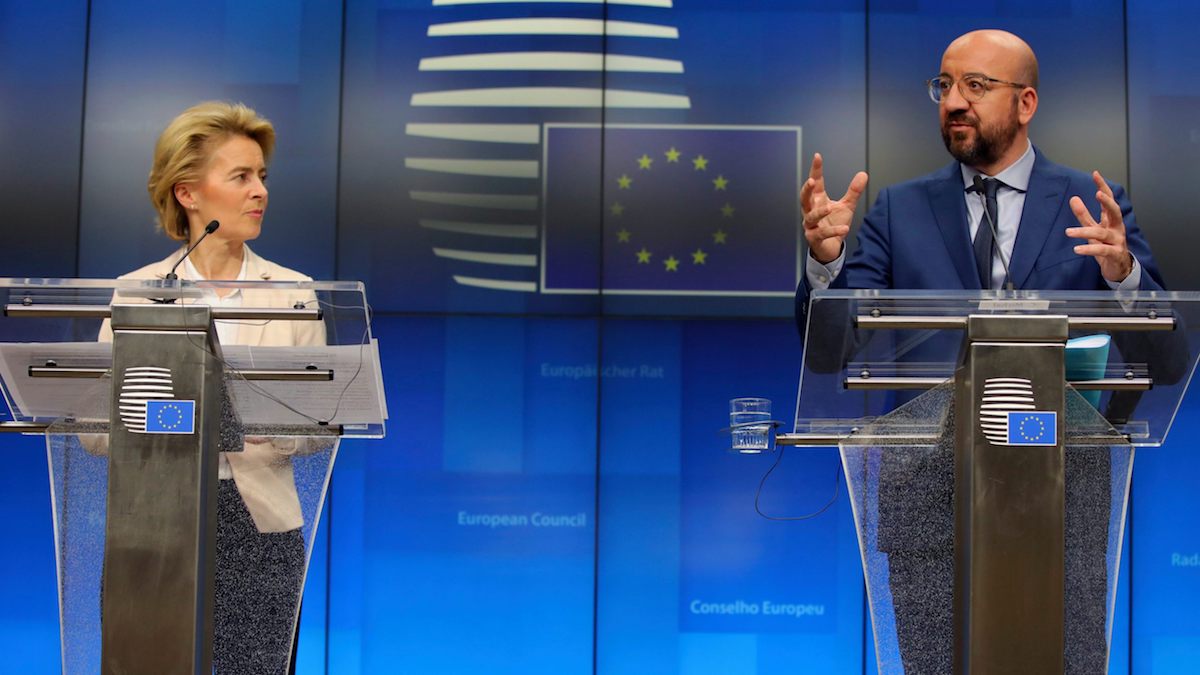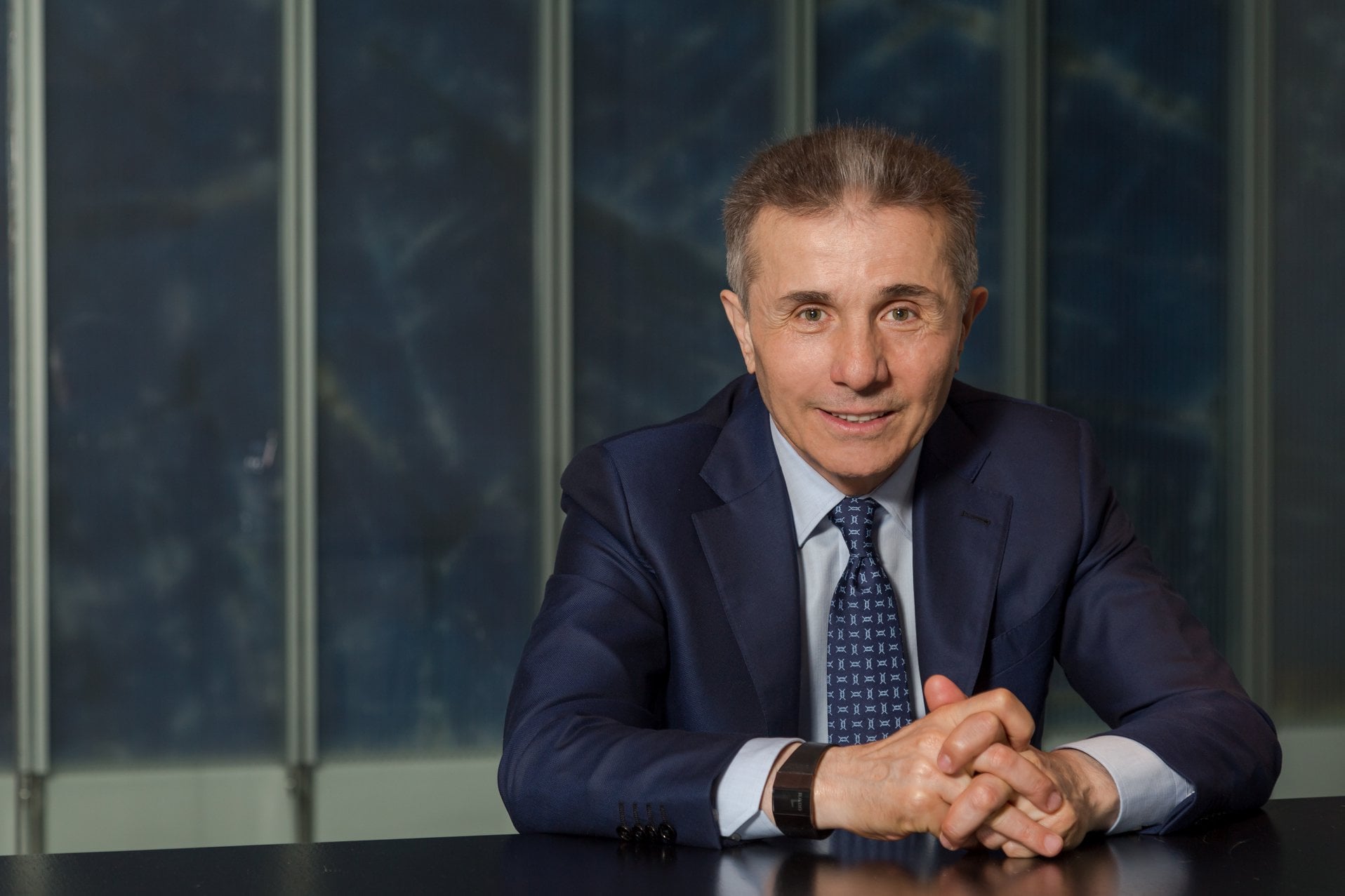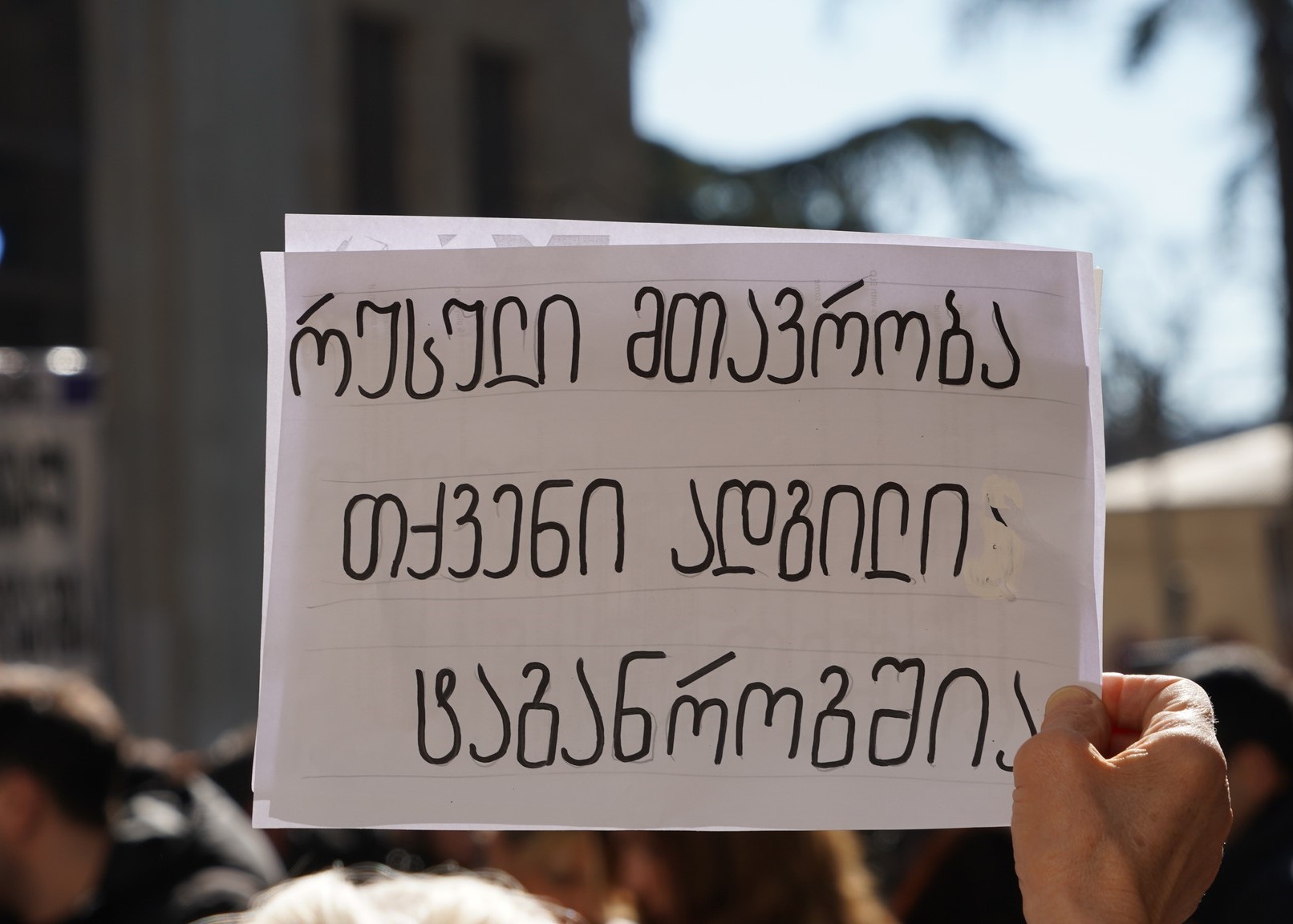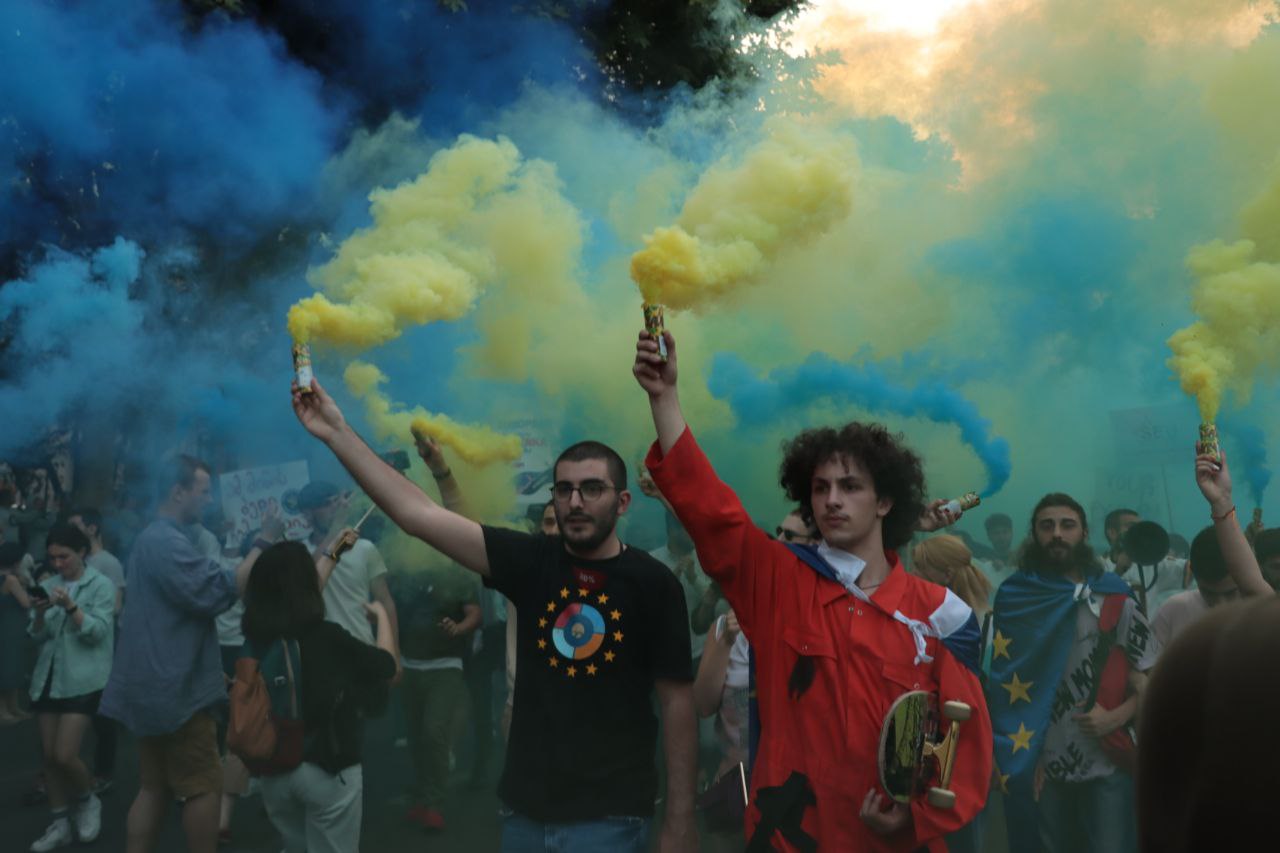On November 8, Georgia will find out whether it will obtain EU candidate status. What's important to know?

Conclusion on Georgia’s status as an EU candidate
November 8 is an important date for Georgia — European leaders will make a final decision on granting Georgia EU candidate status in December, but before that, the European Commission will publish its annual enlargement report.
The report will assess whether the country has taken into account the 12 recommendations that Western partners have urged Georgia to fulfill, what progress Georgia has made in terms of reforms and, accordingly, whether it deserves candidate status.
Recently, the country’s leadership has increasingly said that there are more reasons for optimism. According to Georgian Dream leaders, Georgia has thoroughly fulfilled the 12 recommendations, and therefore Georgia is very likely to receive candidate status in December.
Optimism is shared by many experts, but unlike the government, they believe it will happen taking into account the current geopolitical processes and not because the country has managed to make reforms.
Geopolitical factor as a decisive one
“We have come to a consensus that the EU must expand. This is the geopolitical result of Russia’s war of conquest against Ukraine.” This statement by German Foreign Minister Annalena Berbock was taken by many in Georgia as a positive signal that a geopolitical approach, rather than implementation of recommendations, would determine Georgia’s eligibility.
The third sector refers to geopolitical factors as Georgia’s only chance. Despite the fact that Georgian Dream has not met the conditions, the country should still be granted status – such an appeal by more than 160 organizations was sent to the European Commission five days before the latter’s decision.
The essence of the appeal is that “despite the problems in Georgia, in parallel with an objective assessment of the fulfillment of the 12 priorities,” the country should be recommended to be granted EU candidate status,” because leaving Georgia without status means leaving it alone with Russia:
“[This status] would help the Georgian people to better deal with Russian interests in Georgia, because more EU means less Russia.”
What Georgia has done and what it has failed to do
On June 17, 2022, the European Commission issued an opinion on granting EU candidate status to Georgia, Ukraine and Moldova. The latter were granted EU candidate status with the condition that they fulfill certain obligations, while Georgia was instructed to first carry out a 12-point plan, and only then would the country have a chance to get candidate status.
Georgia had a year and a half to carry out the plan – and in December, the country will have its answer.
According to the assessment of public organizations that monitor the fulfillment of the 12 recommendations, only one has been done (?); two points can be considered largely done (?); seven points are partially done (?) and two conditions are not fully done (?). These are deoligarchization and depolarization.
What were Georgia’s objectives?
- Depolarization – ?
- Electoral and institutional reforms – ?
- Independent court – ?
- Anti-corruption measures – ?
- Deoligarchization – ?
- Organized crime – ?
- Freedom of media – ?
- Vulnerable groups – ?
- Gender equality – ?
- Involvement of civil society – ?
- Consideration of ECHR decisions – ?
- Independent public defender – ?
Polarization is an insurmountable problem
Polarization remains an insurmountable problem. Experts note that during this time the government has not tried to solve the problem of polarization, but on the contrary has made many decisions that have aggravated relations between different political camps.
The actions of the authorities in the last year and a half, such as initiating a “law on foreign agents”, accusing American and European diplomats of dragging Georgia into war, accusing USAID and other Western organizations of conspiring to destabilize the situation in the country, and, finally, the attempt to declare impeachment of the president because of her European tour – all of this has increased polarization, and created a feeling that the government is not very strong in its desire for European status.
Along with standing recommendations, these steps, according to many Georgian and Western commentators, have only distanced Tbilisi from its European future. Over the past year and a half, the Georgian Dream has been labeled a pro-Russian force by those politicians who were originally in power of the Dream.
“All this [the government]… of course does to please Russia. The most important thing for it is that the patron state – Russia – is satisfied. […]They are doing everything to destroy any chance of getting candidate status,” said expert Paata Zakareishvili, who in 2016 assessed the actions of the Georgian Dream. Until 2010, he was a member of the Georgian Dream leadership – the Minister of State for Reconciliation and Civil Equality.
Experts consider the pardon of Niki Gvaramia, director general of the opposition Mtavari Archi TV company, as the only positive step towards overcoming polarization. However, the responsibility for this lies not with the government, but with the president. President Salome Zurabishvili made this decision against the will of the Georgian Dream and because of this she faced harsh criticism and opposition from the ruling party.
The government accuses the opposition of not fulfilling the condition of polarization and says that depolarization would have been achievable had there been an “honest opposition”.
Conclusion on Georgia’s status as an EU candidate
Deoligarchization
Experts call the fifth point of the 12-point plan, deoligarchization, completely unfulfilled.
There is no requirement to name and list specific oligarchs. Nor does this point oblige the country to draft any special bill related to deoligarchization. This recommendation is aimed at eliminating the excessive influence of private interests on the economic, political and public life of the country.
Georgian Dream initially drafted a bill on “deoligarchization”, but the Venice Commission criticized it because it saw the danger of using the law for political purposes against political opponents. Dream took into account the Venice Commission’s request and the bill on “deoligarchization” was rejected by the parliament.
Following this, on September 14, an action plan on deoligarchization was adopted at a government meeting. It should help prevent the excessive influence of interests in political, economic and public life and, according to government officials, is based on the recommendations of the Venice Commission and the European Union.
What specific legislative changes the action plan implies is unknown at this stage. Since the plan is not a legal document or a law, it is not within the competence of the Venice Commission.
As soon as de-oligarchization appeared in the 12-point plan, a discussion started between the government and the opposition in Georgia about who in Georgia is an oligarch with excessive influence on the political and economic life of the country.
Conclusion on Georgia’s status as an EU candidate
The government categorically denies any influence from former Georgian Prime Minister Bidzina Ivanishvili [considered the country’s shadow ruler] on politics and does not recognize his informal rule.
Controversy over status and upcoming elections
Experts said that in the event of refusal by the European Commission, the government would try to shift responsibility to the opposition.
A similar plan was previously seen in the rhetoric of the ruling party, but recently statements by several opposition MPs have been the reason for the intensification of the campaign. Opposition MPs said that international partners are getting different messages from the opposition.
“There are politicians within the opposition who behind closed doors, non-publicly broadcast messages to our partners asking them to postpone the decision on status until after the Georgian elections,” Khatuna Samnidze, an opposition MP and chair of the Republican Party, said.
The same statement was made by MP Khatia Dekanoidze. According to her, the partners are somewhat concerned that the opposition is sending mixed signals on the issue of candidate status.
According to this theory, part of the pro-European opposition demands that European MPs refuse to grant the status in December and instead grant it later. They believe that it would be strategically better if the country did not receive status at this stage – since receiving status with an unfulfilled plan will strengthen the position of the Georgian Dream.
The ruling party called this idea, disseminated by Khatuna Samnidze, “a day of confessions.”
“We have been saying for months that the opposition is lobbying for the failure to obtain candidate status,” Irakli Kobakhidze, chairman of the ruling Georgian Dream party, said, and blamed specific opposition forces for the incident:
“The National Movement [a party created by Mikheil Saakashvili], Lelo and [Nika] Gvaramia have spoken out in Europe against obtaining candidate status.”
According to Kobakhidze, “the radical opposition is concerned that the country is likely to get candidate status, they are afraid that this will reduce their remaining percentage of voters.”
The issue has become a topic of heated debate within the opposition.
The largest opposition party in parliament, the National Movement, calls the accusations of its opposition colleagues groundless.
Zurab Chiaberashvili, the National Movement’s foreign relations secretary, called Samnidze’s statement “cynicism typical of Russian propaganda.”
Disputes on the status issue are not only between the opposition and the government, but also became the reason for the President’s confrontation with the government. Salome Zurabishvili is openly skeptical of the government’s pro-European plans.
In an interview with CBS, President Zurabishvili was asked about the impeachment procedure initiated by the government: “Does it seem that Irakli Garibashvili [Georgia’s prime minister] is not interested in joining the EU?” to which she replied:
“This is a question that the entire population is asking – do they [“Georgian Dream”] really want this [EU integration] or are these empty words.”
Talking about Georgia’s Euro-Atlantic integration process, Zurabishvili noted that more activity is needed from the West, particularly from the US.
“I will give one example. I have been president for five years and I have not had the opportunity to have a single official meeting or phone conversation at my level with the president or vice president. I realize that there are more pressing issues, but I believe that there needs to be more publicity about the fact that the U.S. supports granting Georgia EU candidate status. I know this is being talked about in the U.S., but voicing it at the highest level would be very important for the citizens of Georgia,” Zurabishvili said, adding that refusal to grant Georgia candidate status “would be a big victory for Russia.”
In the fall of 2024, Georgia will hold crucial parliamentary elections. The Georgian Dream party, ruling the country for the twelfth year, will try to retain power for a fourth term. The weakened opposition must do its best during this year to prevent this from happening.
Conclusion on Georgia’s status as an EU candidate
Should Georgian pro-Western society want the status of candidate to be “in the hands” of the Georgian Dream? This question has long been the subject of debate.
Giya Nodia, a political observer, says that besides the fact that any progress in this direction should be welcomed, even if it is only symbolic for now, there is a stronger argument:
“The window of opportunity may soon close. Let us recall that as recently as last January, we were afraid to even dream of candidate status. If it becomes imprinted in the minds of the European elites that Ukraine and Moldova are one thing and Georgia is another, the prospect of getting status may be completely off the agenda”.
Nodia also believes that if Georgia is given candidate status this year, Georgian Dream will win the elections thanks thereto.
“This is a factor, but not a decisive one. There are two essential factors on which the prospects of the opposition’s success in 2024 depend,” he wrote on his blog.
Forecast
Prime Minister Garibashvili stated that he is optimistic, given that the country has mostly fulfilled the 12 recommendations, and taking into account the geopolitical situation.
Georgia’s Western partners are also expressing cautious optimism.
EU Ambassador to Georgia Pawel Gerczynski said that the Georgian Dream government has recently made great efforts to fulfill the 12 recommendations, but that more could have been done in a year and a half for the country to succeed.
“A lot has been done in this direction, but more could have been done in a year and a half. For example, if we look at polarization, it still exists in the country. As far as de-oligarchization is concerned, these are still just future steps.”
Conclusion on Georgia’s status as an EU candidate
Why is status so important?
Among supporters of the European path there are those who believe that the importance of candidate status is exaggerated. As an example, they cite Turkey, which has been a candidate for membership since 1999, which has not prevented Erdogan’s government from establishing explicit authoritarianism in that country.
But the reasoning of critics of this view is that context must be taken into account – EU enlargement tends to occur on a regional, group basis. For many years Georgia was considered a member of the Ukraine-Moldova-Georgia trio and even held a leading position therein. However, the situation has changed – Ukraine and Moldova were granted status, while Georgia was denied. This group would be effectively disbanded if Georgia were left behind a second time.
Conclusion on Georgia’s status as an EU candidate























